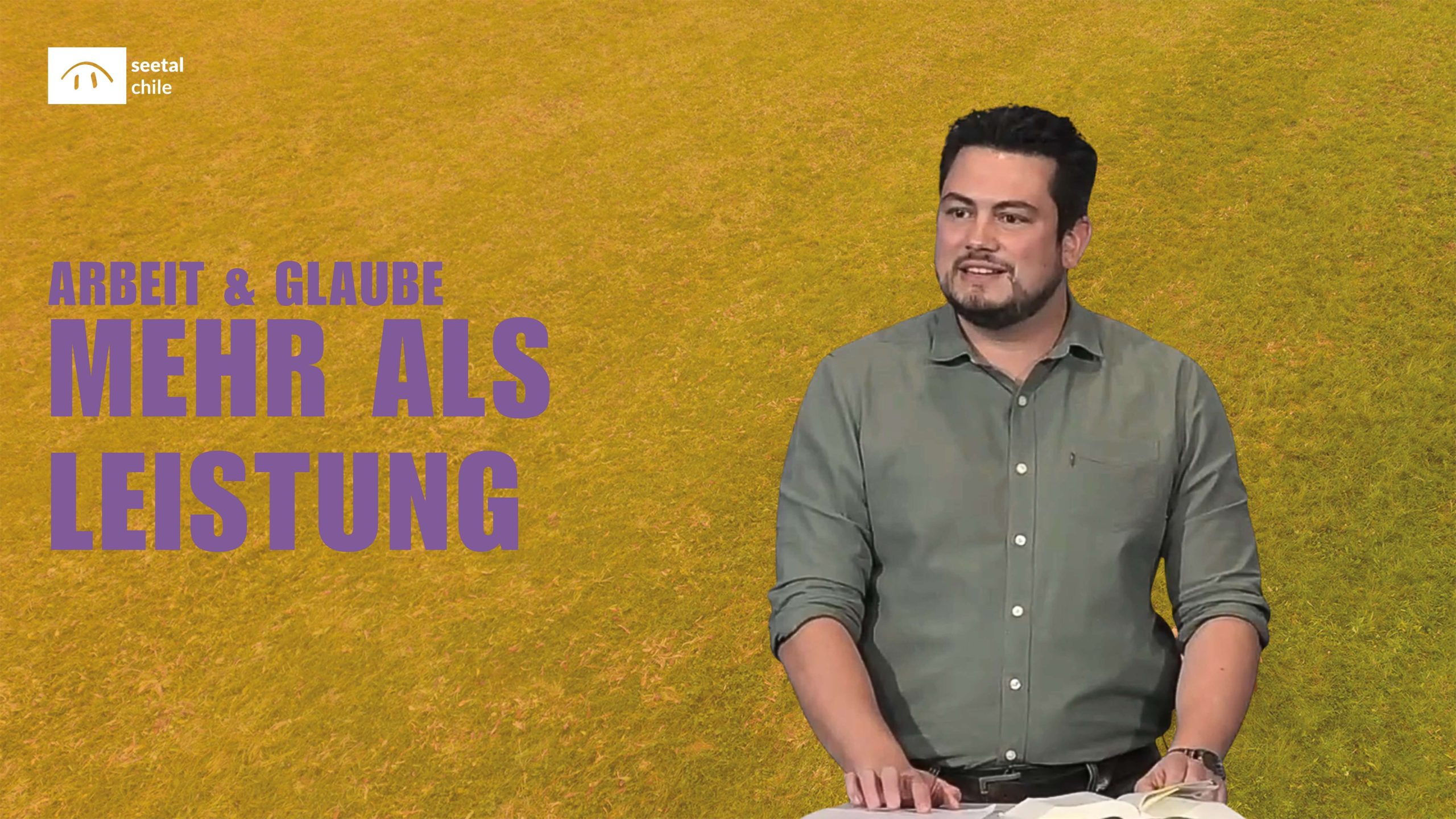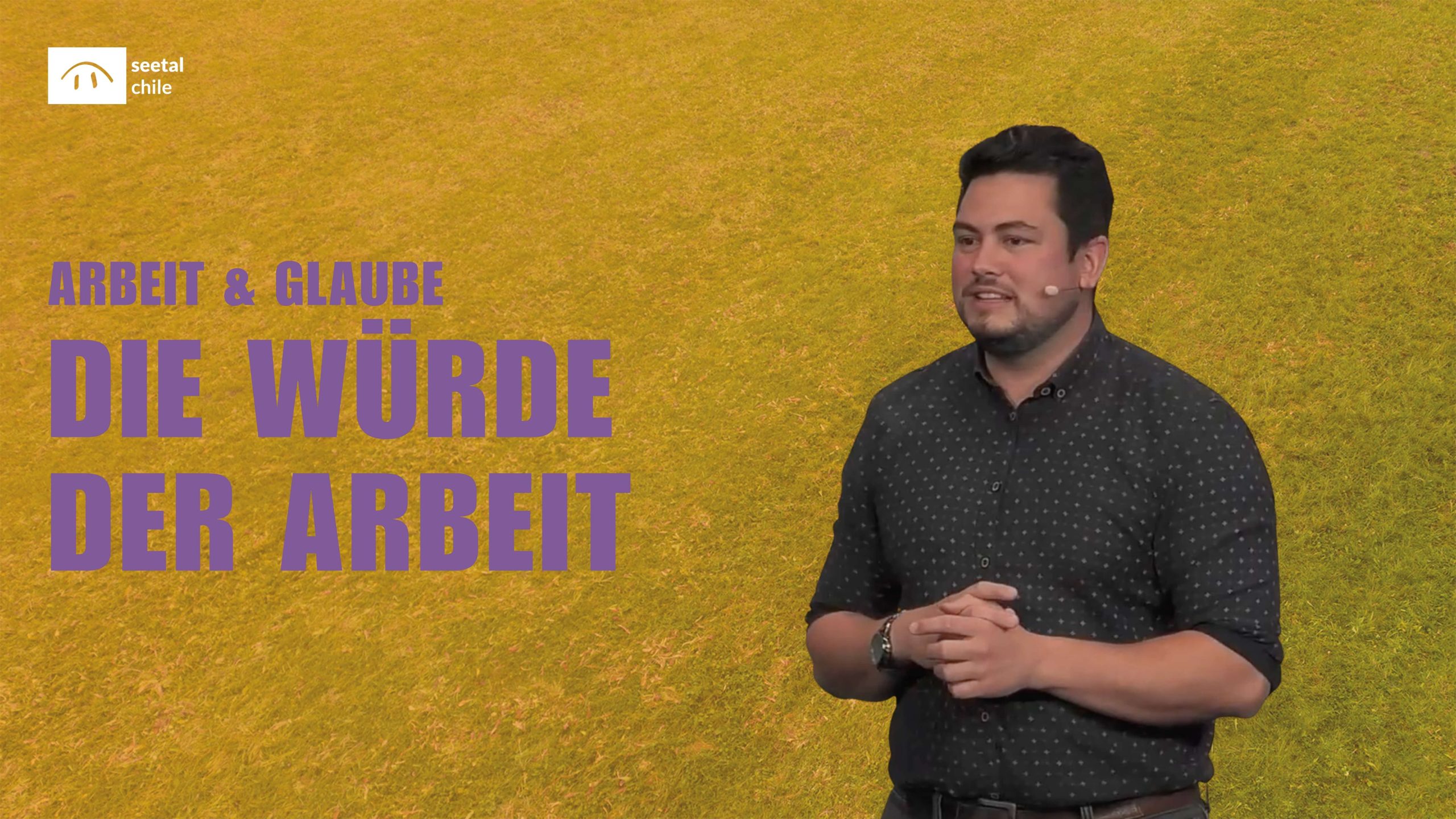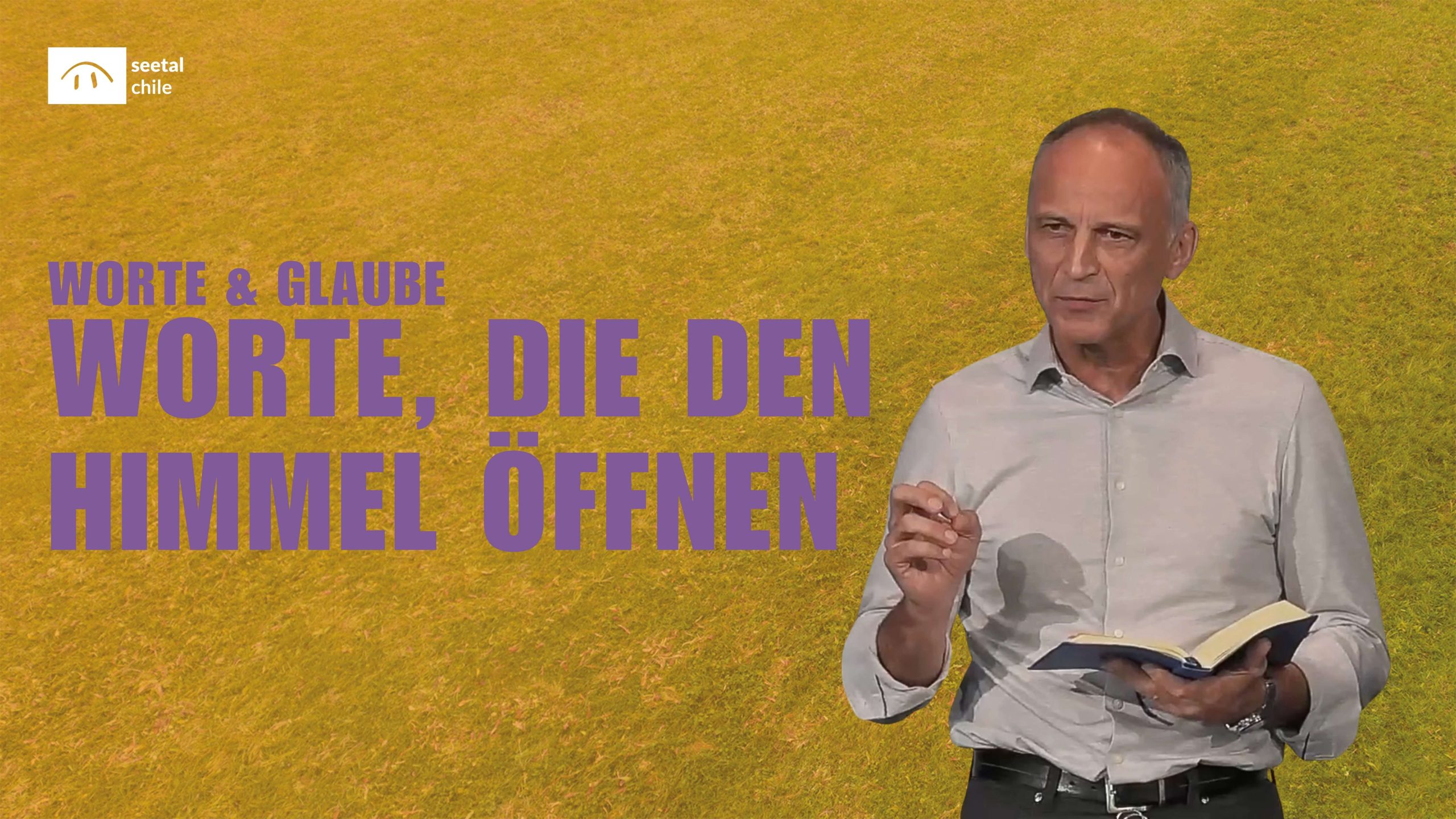Work & Faith | The dignity of labour
Series: EIFACH muetig – with Jesus as a role model | Bible text: Genesis 1:27–2:3; Genesis 2:15
When God created the earth, he did the work himself. Humans were given the task of cultivating and preserving the garden. They were included in God’s work. Since God is the author of labour, there is dignity in all work. If our work is also directed towards our neighbour, then we are working in a similar way to God. With this in mind, all work is worthy work, because it is part of my personal calling as a follower of Jesus in this world. Therefore, I am not just doing a job – I am practising a profession!
Today we start the new sermon series «Work & Faith». This year, we are looking at specific topics to see what following Jesus looks like. I would argue that the area of work probably has the greatest impact.
What does this list tell us? If you long to make a difference in the world around you, then it’s worth looking at work! When I talk about work, this includes paid work, voluntary work in church or clubs, childcare, housework or gardening.
God himself «worked»
God created the world through his word. We heard more about this in the previous series of topics. He created out of nothing, was creatively active. We heard the end of this in the text reading. This creation account is unique compared to other creation myths. In ancient times, the earth was often the result of a struggle. For the Greeks, people were created so that they could work for it. It was not a blessing. On the contrary. The highest form of labour was with the mind, the lowest with the hands. The biblical view is quite different. God himself works. «So the creation of heaven and earth was completed, with everything that belongs to it. On the seventh day, God completed his work and rested from his labour. And God blessed the seventh day and declared it holy, because it was the day on which he rested from his work of creation» (Genesis 2:1–3 NLB). The word for work used here refers on the one hand to the work of God (Genesis 2:1–3) and on the other to the work of people (Exodus 20:9–10). God is creative in his approach – and he himself finds what he has created beautiful! When I make my own schnitzel or cordon bleu and then fry it until it’s nice and golden brown, I can’t stop raving about it! God created us humans. Take a look around you. No two are the same! In the Bible, the image of the potter is often used, God is the potter who has wonderfully moulded and created us humans. «And yet, Lord, you are our Father. We are the clay, you are the potter and we are the work of your hand» (Isaiah 64:7 NLB).
Dignity of labour in the mission of creation
The title of today’s sermon is «The dignity of labour». Dignity means a high value and the significance it brings. Being creative and cultivating the earth is part of being in the image of God. As we heard in the text reading, man was created in the image of God (Genesis 1:27) and has a specific task. «The LORD God brought man into the Garden of Eden. He was to cultivate and preserve it» (Genesis 2:15 NLB). All labour has dignity because it reflects the image of God the Creator in us. Rulers in the ancient Near East erected statues of themselves throughout the empire in order to exercise authority. These were representatives, symbols of the presence of the ruler and his authority. We humans are images of God and differ from the animals. We have a different position. Labour has dignity because it is something that God does! Through work we have the same function as the ancient statues. «No activity is too small a vessel for the immense dignity that God gives to labour» (Timothy Keller). As a follower of Jesus, you participate in God’s creative creativity and the cultivation of the earth with your work. Work has dignity because it is something God does! Work is one of the ways in which we can make ourselves useful to other people and not just to ourselves. If we act in such a way that our work improves people’s lives and not just our bank balance, we are acting like God!
Every work is worthy
All work has dignity because God created the earth and is the author of labour. There is one exception: work in the field of pornography and sex work. Humans have dignity, but this work does not correspond to human dignity! Of course, there are also downsides to labour. Next Sunday, more on the topic of when work corrupts me, when I determine my identity through work and when work takes on too great a position in my life.
Apart from the exceptions mentioned above, there is no work that has more dignity than others. But this is not the case in our thinking. Behind this is a Greek way of thinking that only recognises as good work that brings us a lot of money, prestige and influence. Simple tasks are seen as beneath us! Almost five hundred years ago, Martin Luther brought a positive view of all work into play. Work is not just a «job», it is a vocation. That is where the word «profession» comes from. Called means that I have been placed in this position by someone else. I cannot call myself! Now comes the central point: God calls us to where we are! If we do good to others, then we are the «Finger of God» in this world. «God himself works through the farmer, the blacksmith and the baker so that we have food and clothing. Therefore honour every profession, for it is appointed by God» (Martin Luther). Psalm 127:1, for example, implies that God builds the house through the builders»[…] Unless the LORD builds the house, the labour of the builders is in vain. If the LORD does not protect the city, it is in vain to surround it with guards» (Psalm 127:1 NLB).
We will get the good news to the people in a fortnight through your work. But you can already make a difference now. How about saying thank you when you go shopping? Taking out your headphones? Saying goodbye to the person by name? I lived in Bern for four years. Many people think a city is anonymous. But that’s not true! I always went shopping in the same shops. At Migros at Bern station, a shop assistant always recognised me! For Christmas 2021, I made a little gift for all the shop assistants at the Denner shop where I always shopped. How could you express the dignity of other people’s work? Because the value of us does not lie in the work we do or the position it gives us. From this follows a challenge to the followers of Jesus not to judge people by their position. «My brothers and sisters, keep the faith in Jesus Christ, our Lord of glory, without distinction of person.» (James 2:1 LUT). What gives us dignity is that we humans are created in the image of God. Since God is the author of all work, all work has dignity! Labour did not come into the world after the separation from God (fall of man). It was God’s good plan for us to live in a constant cycle of work and rest – just as he himself exemplified!
Possible questions for the small group
Read the Bible text: Genesis 1:27 – Genesis 2:3
- How do you feel about your own work (whether paid, voluntary, household, childcare, etc.)? Do you find it easy or difficult to see it as God’s calling?
- What do you think about the statement: «I’m not just doing a job – I’m practising a profession»? How does this perspective change the way you think about your everyday life?
- How can you be a blessing to other people through your work (no matter what kind)? Can you think of a specific situation in which you have encouraged or supported someone?
- Is there still a hierarchy of work in your mind (e.g. «spiritual» work is more valuable than physical work)? Where could such thoughts come from and how can you correct them?
- How can you recognise and promote the dignity of others» work in everyday life? Do you have any ideas on how you could express appreciation with small gestures (e.g. shop assistants, cleaning staff, etc.)?
- What does it mean for you that God acts through you and your work – that you are, so to speak, «the fingers of God»? What does this change in your attitude, your motivation or your behaviour?





